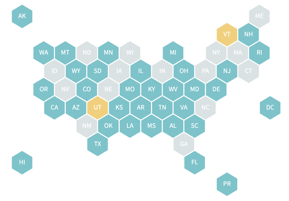Second Opinions for Children - An Interview with Dr. Jesse Skoch, Neurosurgeon at Cincinnati Children's Hospital

Prior to the emergence and adoption of telemedicine, when your child became sick, you would start at your local pediatrician, and when it was serious, you would seek the best local specialty care, often from your local hospital. If you were lucky, your local hospital would either have a great pediatric department, or you would actually have access to a hospital that specialized in pediatric medicine. If it was complex or rare, and your local area did not have the expertise your child needed, you would need to choose between settling with the best they could offer, or seeking out the hospital with the right specialty.
This can mean packing your family up, and traveling to get the right kind of treatment and medical expertise your child needs. You may travel to multiple facilities before finding the right expertise or desired treatment. The list of burdens and disruptions this places on families is long, from potentially exposing a child’s fragile immune system throughout the journey, to disruption of schooling, a parent’s ability to work, medical and travel costs, as well as overall continuity. This all during a time where you want to bring some level of predictability and stability back into your child’s and your family’s lives. For some families, this has meant permanently relocating. For others, traveling or moving is simply not possible, and you must settle with the best expertise accessible locally.
Fortunately, that was then. While there is still room to grow, many children’s hospitals have recognized this need and have dramatically expanded access to care through online second opinion and consultation programs. Some of the nations top ranked children’s hospitals, from the east to west coasts, now offer online consultation services. This list includes, but is not limited to:
- Children’s Hospital of Philadelphia (CHOP)
- Cincinnati Children’s
- Children’s Hospital of Los Angeles
- Nationwide Children’s
- Boston Children’s
- Children’s National
Children facing complex medical issues from neurological conditions to cancer, almost always require a specialized pediatric care team with deep expertise. Pediatric specialties are often centralized in few centers of excellence, making them more difficult to access from many areas of the world prior to online access. Recently, Purview’s Les Trachtman, expanded on this topic with Cincinnati Children’s Hospital neurosurgeon, Dr. Jesse Skoch.
Dr. Skoch has served as a leading physician for both his division of Neurosurgery and the second opinion program, providing several recommendations to referring physicians, patients and their families across the country. In his recent article, published on the Cincinnati Children’s blog website, Dr. Skoch provides guidance throughout the second opinion process when additional expertise is needed.
A Few Takeaways from Purview’s Interview with Dr. Skoch
- Tangible Impact on Patient Access
Second opinion or online consult programs offer a broader spectrum of access to specialized medical expertise for more patients. Dr. Skoch said, “Cincinnati Children’s used to get primarily regional second opinions, and now we're looking at second opinions on a national scale." - Second opinion programs help patients to more easily identify and access sub-specializations or multidisciplinary teams when seeking expertise for a rare or complex condition.
Subspecialists and teams of subspecialists for rare and complex conditions are not typically plentiful and can be difficult to find outside of centers of excellence. Using an online second opinion program allows patient families and referring physicians to interact with a hospital and multidisciplinary team for an expert opinion enables more informed decision making, avoids additional clinical appointments, long wait times, and unnecessary travel by the patient. - Remote Second Opinions Require Quality Up-to-date Medical Records
It is critical to have good and recent records when reviewing a patient case remotely, as the physician offering an expert opinion relies heavily on this documentation. Fortunately, most patients dealing with complex issues have abundant documentation at the point of requesting an expert opinion. - When NOT To Seek A Second Opinion
If it is an urgent situation, patients should proceed with extreme caution in doing anything which can delay urgent care. Additionally, patients may want to complete local testing and imaging locally, including an initial review with their local physician, prior to seeking an opinion from a subspecialist. It is not only easier on the patient to complete testing and imaging locally, but it also provides the basis that the subspecialist will need to provide an informed opinion. - Navigating Differing Treatment Options or Opinions
It is important to hear reasoning on why a subspecialist is recommending a particular treatment. In the best case, a physician will be familiar with all options presented to the patient, and can provide all of the reasoning behind why they believe that the patient will experience a better outcome and why the treatment is a better fit for them. They should have discussions with the family to better understand their lifestyle and so on, to provide better guidance. Patients are encouraged to discuss the recommendation with their original provider. At times, a third opinion could be necessary to help make a decision when stuck between options. - How does following up with a second opinion work?
If a patient's family wants to follow-up with the second opinion, and come to the facility to receive treatment for their child, this will begin with an in-person evaluation. Depending on the circumstance, Cincinnati Children’s can coordinate with the family to ensure that further appointments and potential procedures or treatments are scheduled within a reasonable window of time for the out of town family. They often coordinate so the patient can see the multidisciplinary simultaneously, or sequentially in the same day. When appropriate, procedures like surgery may be expedited for the window of time when the family is in town. - Ongoing and Continuity of Care
While ongoing care can be challenging, Cincinnati Childre’s tailors it to each patient’s individual situation. Ideally, the patient returns for a follow-up, which may require a short local stay. Their hospitalization may be extended to observe the patient a little longer than typical. They may also coordinate ongoing care and follow-up to occur within their local area from local physicians or pediatricians. Imaging can often be obtained in the patient’s local area and shared back to Cincinnati Children’s. - How do I start a second opinion with Cincinnati Children's?
See information on eligibility directly from Cincinnati Children's Online Second Opinion Program web page. Cincinnati Children's can also answer questions over the phone.
----
Cincinnati Children’s Hospital Medical Center is globally recognized for their leading research, education and innovation in pediatric care. Consistently ranked as a top pediatric hospital by U.S. News & World Report in their annual Honor Roll, Cincinnati Children’s was most recently ranked as third in the nation in 2022. With second opinion programs emerging as a new channel for accessing specialty expertise from afar, Cincinnati Children’s has ensured that children across the United States can benefit from access to their widely acclaimed disciplines and physicians through their online second opinion program.
Watch the Full Interview On-Demand
Reach out to us today, check out our white papers,
or join one of our upcoming webinars!
Next Up! You're invite to join us on May 25th for a Live Q&A
on The Legal Reality of Issuing Second Opinions to Out of State Patients 



